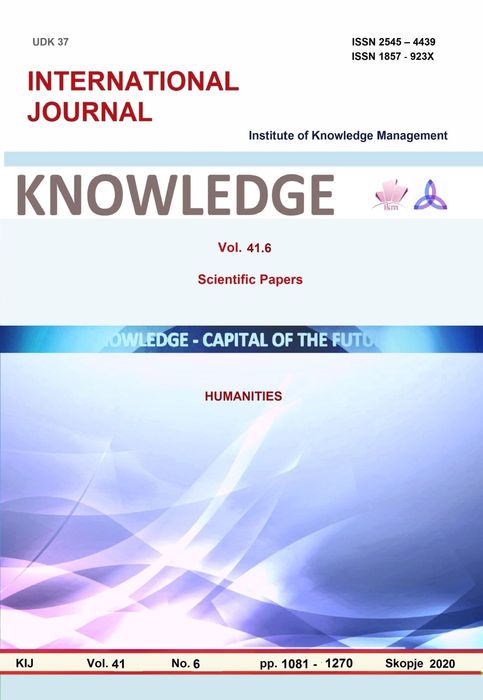EMOTIONAL ADDICTION AS A BARRIER IN INTERPERSONAL COMMUNICATION
EMOTIONAL ADDICTION AS A BARRIER IN INTERPERSONAL COMMUNICATION
Author(s): Maria DishkovaSubject(s): Psychology, Victimology
Published by: Scientific Institute of Management and Knowledge
Keywords: emotional addiction; self-control; communication; education; domestic violence
Summary/Abstract: This article provides a brief literature review of the problem about emotional addiction as particularly relevant, because it affects more and more people nowadays from an early age. All topics related to addiction are extremely important in our century, especially from a pedagogical and psychological point of view, because the problem affects many children and young people, and overcoming the difficulties is important for the overall future development of the individual (a man or a woman). The topic of emotional addiction is closely related to the phenomenon of domestic violence, because in practice it often turns out that the victim is emotionally dependent on the abuser, no matter of his dangerous actions against the victim. The opposite is also possible and appears very often: the abuser is emotionally dependent on the victim, which leads to painful jealousy and inability to soberly assess the real situation, which in turn leads to aggression towards the victim. Unfortunately, the prevention of emotional dependence is rarely discussed in society, but this, along with communicative tolerance, supportive behavior and successful communication skills, must be included in the education of children from an early age. It requires complete emotional self-control, excellent knowledge of one's own emotions and, of course, the ability to recognize others‘ emotions. The article reveals more the essence of the term ―emotional dependence‖, discusses its manifestations and forms, seeks methods for overcoming it. As with any addiction, "treatment" begins with acknowledging the problem, but more specifically, emotional addiction is difficult to be recognized as a real problem. Rather, it is associated with a strong attachment and love to the partner, which is not recognized as painful, unusual, obsessive feelings. It is important to emphasize that the addicted is not to guilty for his condition. His world suddenly becomes dependent on someone else's attitude and actions. This does not have to be the intimate partner. It can be a parent, relative, a close friend or other. It is possible that emotional addiction is a result of another form of addiction or that it leads to another addiction. Why could emotional dependence be a barrier to interpersonal communication? Any uncontrolled emotion leads to difficult communication, can even cause reactions of anger, excitement, rage, aggression. This affects not only communication with the object of addiction, but also with everyone else. The great difficulty in overcoming emotional addiction stems from the fact that when the addicted is separates from the object of his obsession, it is possible to close in on himself, which will also lead to problems in communication, respectively to a new form of an addiction. In fact, emotional dependence is a barrier in front of full communication with others and the joy of pleasant relationships with them.
Journal: Knowledge - International Journal
- Issue Year: 41/2020
- Issue No: 6
- Page Range: 1207-1213
- Page Count: 7
- Language: Bulgarian

